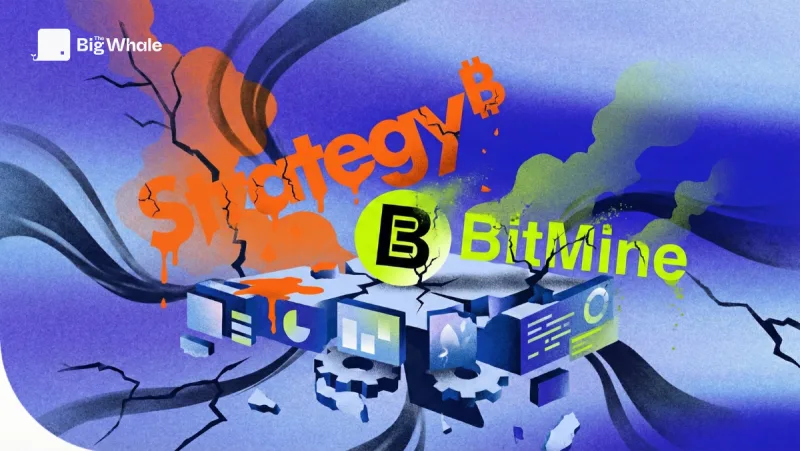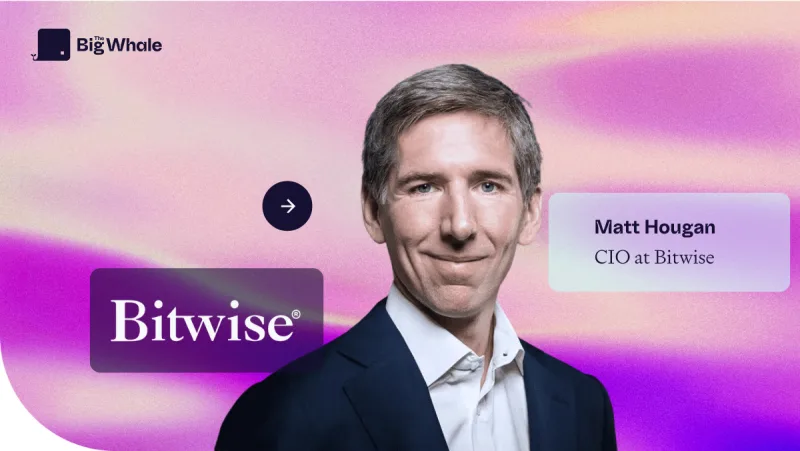TBW - Evan Auyang (Animoca Brands): "The arrival of the Trump Administration makes the United States a new priority for us"

The Big Whale: The crypto and Web3 market appears to be at a turning point, particularly with the election of Trump. The last two years have been complicated for crypto startups in the US, but we're seeing a change in attitude. What's your perspective on this?
Evan Auyang: You're right, the climate for crypto companies has been difficult in the US, especially after scandals like FTX, which led to a particularly hostile political and regulatory response.
However, the arrival of Trump as president seems to mark a turning point.
Trump is a pragmatic figure, and he understands that the crypto sector, and Web3 more broadly, is here to stay. Bitcoin and other blockchain technologies are now integrated into the global financial system. As an economic leader, the US does not have the luxury of ignoring these developments. Trump seems to want to adopt a more innovation-friendly approach, with pro-crypto appointments in his administration and very proactive policies, both on taxation, on the ability for banks to process cryptos and even on the strategic reserve.
That said, what has happened with the Trump family's memecoins shows that things will not necessarily be all plain sailing. Apart from the liquidity issue, because these tokens have attracted a lot of money, there is inevitably the question of the direction the Trump Administration is going to take.
You mention the "Trump" and the "Melania". What is your opinion on these projects? What is the interest?
These tokens have generated a real craze, but mostly among investors already active in the crypto ecosystem. Few newcomers have been seduced by these products, and those who have arrived have often had a negative first experience. Speculative currencies like these are highly volatile and do not reflect the fundamentals of Web3.
In the short term, this may give the industry a negative image, but in the long term, it helps to build a more robust infrastructure. The crypto market is still young, and the lessons learned from these episodes will help to establish more solid standards, both in terms of projects and regulations.
Could the change in the United States' stance on crypto influence Europe and Asia?
Absolutely. Even though Europe, with frameworks such as the MiCA regulation, has taken the lead in regulating the sector, the United States remains a major force in terms of financial flows and investment. If the US strengthens its leadership in crypto, this could push other regions to follow suit, whether from a tax perspective or in terms of regulation.
In Asia, hubs such as Hong Kong and Singapore are already positioning themselves as Web3 leaders. However, the role of the United States is crucial, as much of the world's capital comes from American investors. If the US adopts a favourable approach, it will create a kind of draft.
Does Trump's election change your strategy or priorities at Animoca Brands?
Not in our business model, but it will influence our geographical presence.
Until now, we have been cautious in our interactions with the US market, due to regulatory uncertainties. With a pro-crypto administration, the US is becoming a priority market for us. We plan to expand our operations in the country, whether with physical offices or a strengthened presence.
You mention expansion in the US. Can you tell us more about this?
We are looking into the possibility of opening offices in New York or Los Angeles. Los Angeles, in particular, is a major cultural centre, which makes it a natural choice for our creative activities. We already have a presence with our subsidiary The Sandbox in Los Angeles, but we want to strengthen our operations, particularly to work more closely with local players.
This does not mean that we will reduce our commitment in Europe or Asia. Animoca Brands remains a global company, and we will continue to invest in these regions.
Animoca Brands seems to be at an important strategic turning point. Can you tell us more about your new strategy and its three pillars?
When we discovered blockchain, our hypothesis was that the next big wave of digital assets would come through real ownership of these assets in video games. At the time of our pivot, at the height of the ICO boom (which is back, read our feature), our DNA as a gaming company naturally pointed us in the direction of NFTs and video games.
With a global community of 3 billion gamers, it seemed obvious to us that the creation and ownership of digital assets would eventually belong to them.
However, the sector has become highly speculative, and interest in NFTs, while still relevant, has contracted somewhat due to price fluctuations. We then broadened our approach, moving from a company focused on gaming to a global Web3 ecosystem. Today, our strategy is based on three pillars: investment, project creation and asset management.
- Investment: We have invested in more than 500 companies, mainly in gaming and the Web3 ecosystem, but also in other emerging sectors such as education, with OpenCampus, and decentralised reputation via Mochaverse. These two flagship projects are not purely gaming-focused, but play a central role in our ecosystem.
- Project creation: We are developing internal projects such as The Sandbox and institutional initiatives, including working with Standard Chartered Bank and Hong Kong Telecom on a stablecoin project.
- Asset management: We support projects from conception to market launch and post-launch management, with a focus on liquidity and financial management.
These three pillars work in synergy to solidify our position as a Web3 leader.
With such a large portfolio, how are your investments doing overall?
With over 500 companies in our portfolio, it's natural that not all of them will succeed. Around 20 of them have not achieved their objectives, which is still very marginal.
We use our diversified approach to redirect or adjust companies that need it. Some gaming companies, for example, are struggling to launch credible products, but we work closely with them to help them pivot and evolve. This flexibility is key to our success.
In your opinion, what is the best way to bridge the gap between the traditional economy and the Web3 ecosystem?
Gaming remains an essential entry point. We believe that Web2 games will gradually migrate to blockchain, with a focus on true ownership of digital assets for players. That said, to achieve mass adoption, we need to move away from speculation and focus on real-world applications.
In addition to gaming, we are also exploring the possibilities offered by decentralised finance (DeFi), DPin (Decentralised Physical Infrastructure Networks) and stablecoins. These areas offer concrete use cases, such as optimising cross-border payments through systems that are more efficient than traditional banking.
Speaking of diversification, do you have any investments in artificial intelligence (AI)?
The intersection between AI and Web3 is an exciting area for us. We see huge potential in AI agents to enhance the player experience, transform games into spectator sports, and even optimise DeFi strategies. We've already invested in several AI-related projects, but some partnerships are still confidential. Expect some big announcements soon!
And what about the metaverse? Is it still a priority for Animoca Brands?
For us, the metaverse represents a space where people spend time and interact with digital ecosystems. However, our priority remains digital property. We are not looking to build a metaverse as such, but to encourage its adoption via applications. For example, The Sandbox plays a key role as a gaming ecosystem, but it is only one element of our overall vision.
Finally, what will your priorities be for 2025?
In 2025, we will continue to innovate and support our flagship projects, including Mochaverse, OpenCampus and The Sandbox. We also want to solidify our consulting pillar and explore areas that could transform the industry.
AI remains a key focus, and several innovative projects are in development, with announcements expected soon. Our aim is to remain at the forefront of the Web3 ecosystem while creating real solutions for its users.



